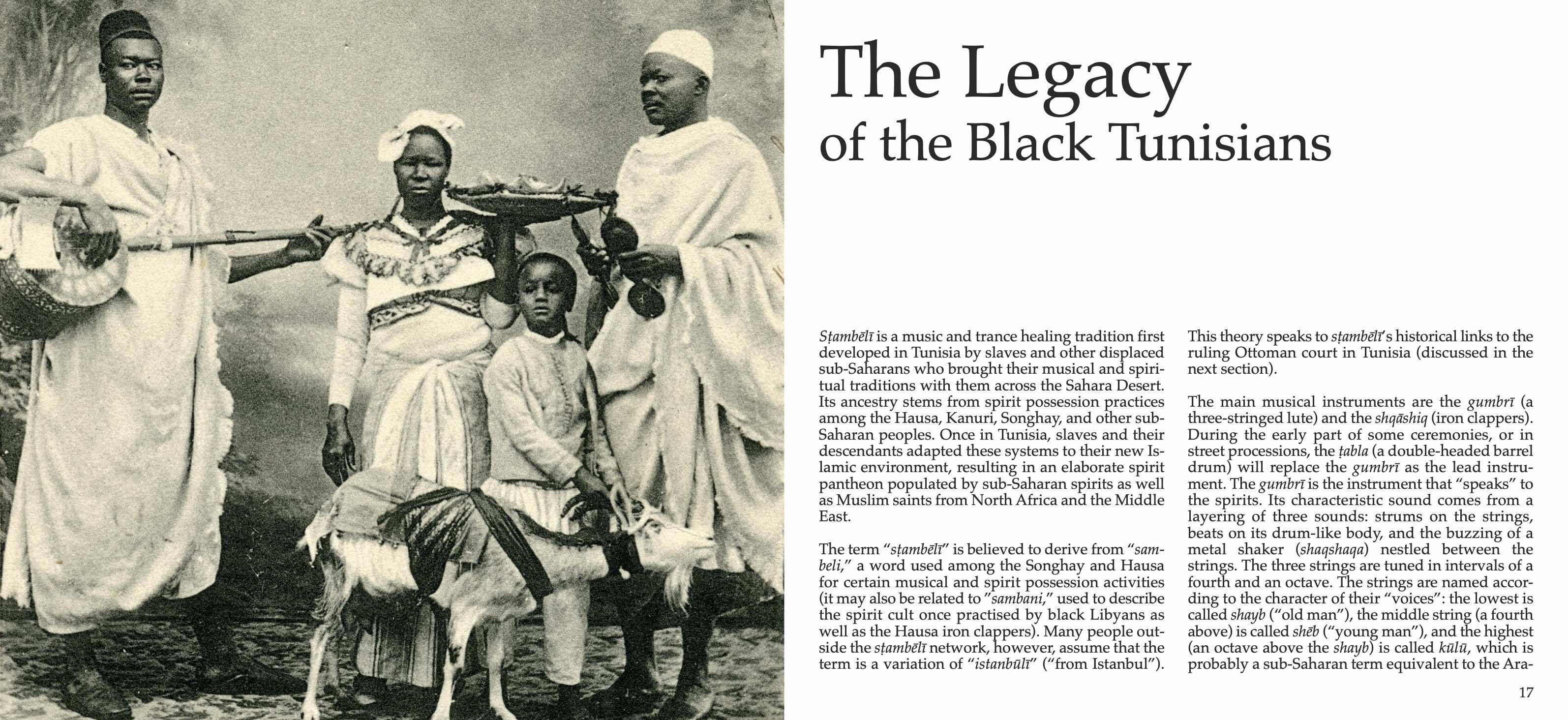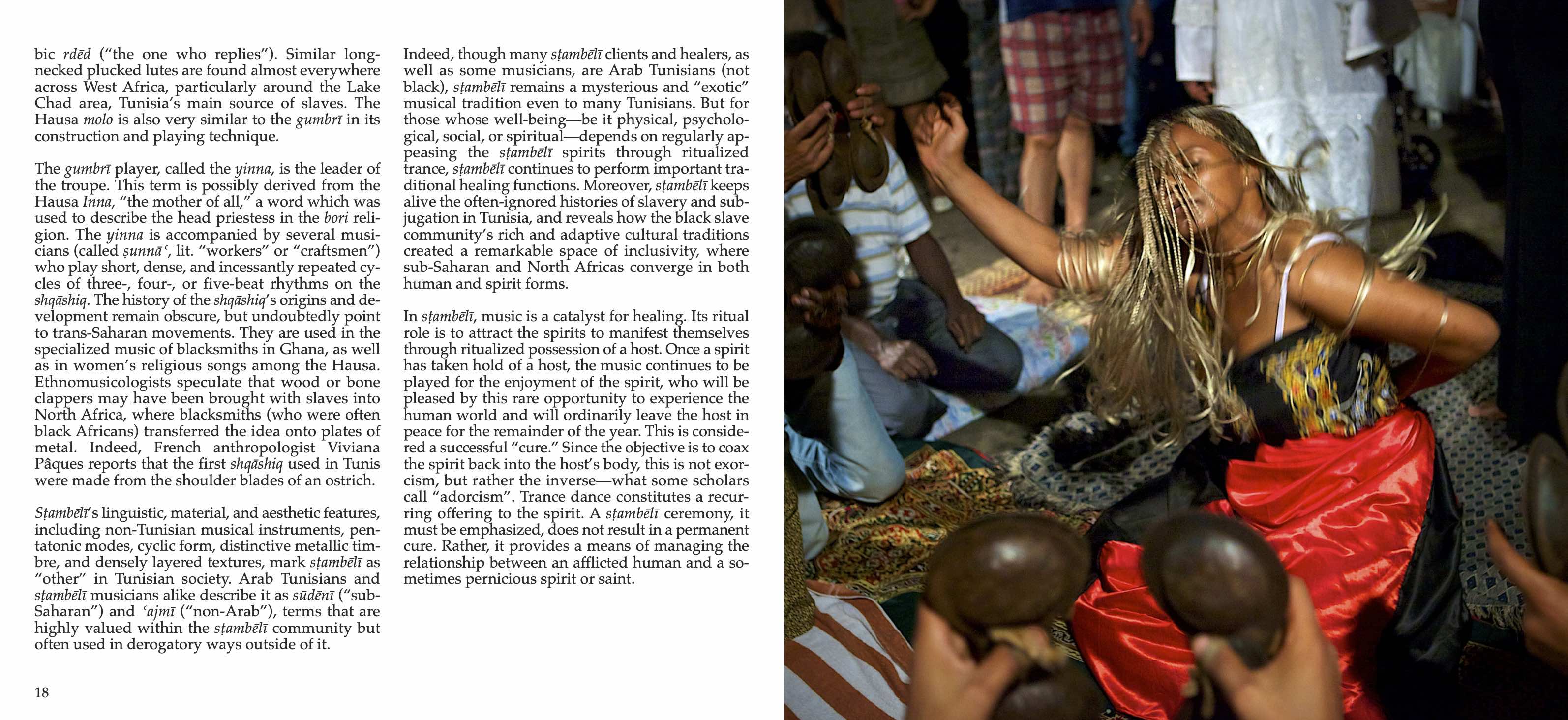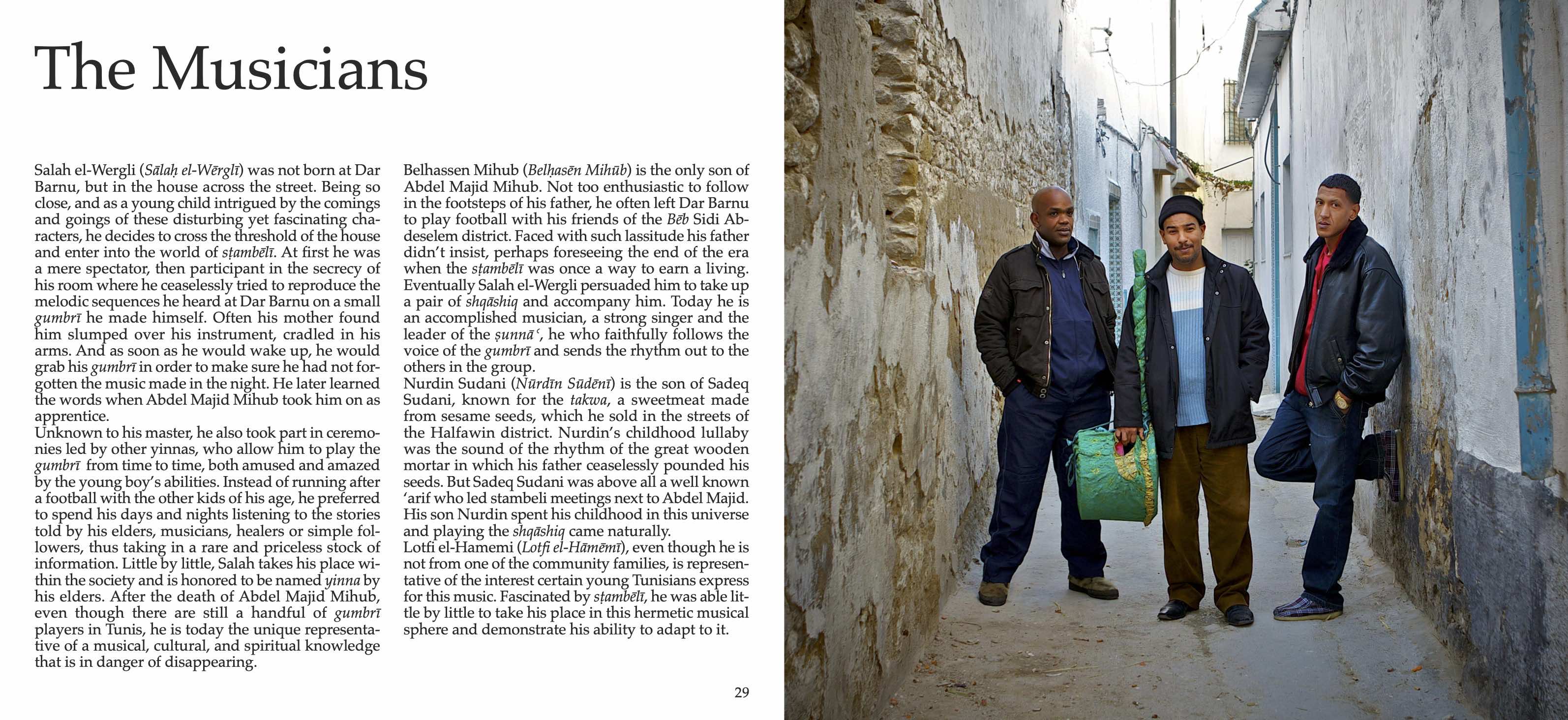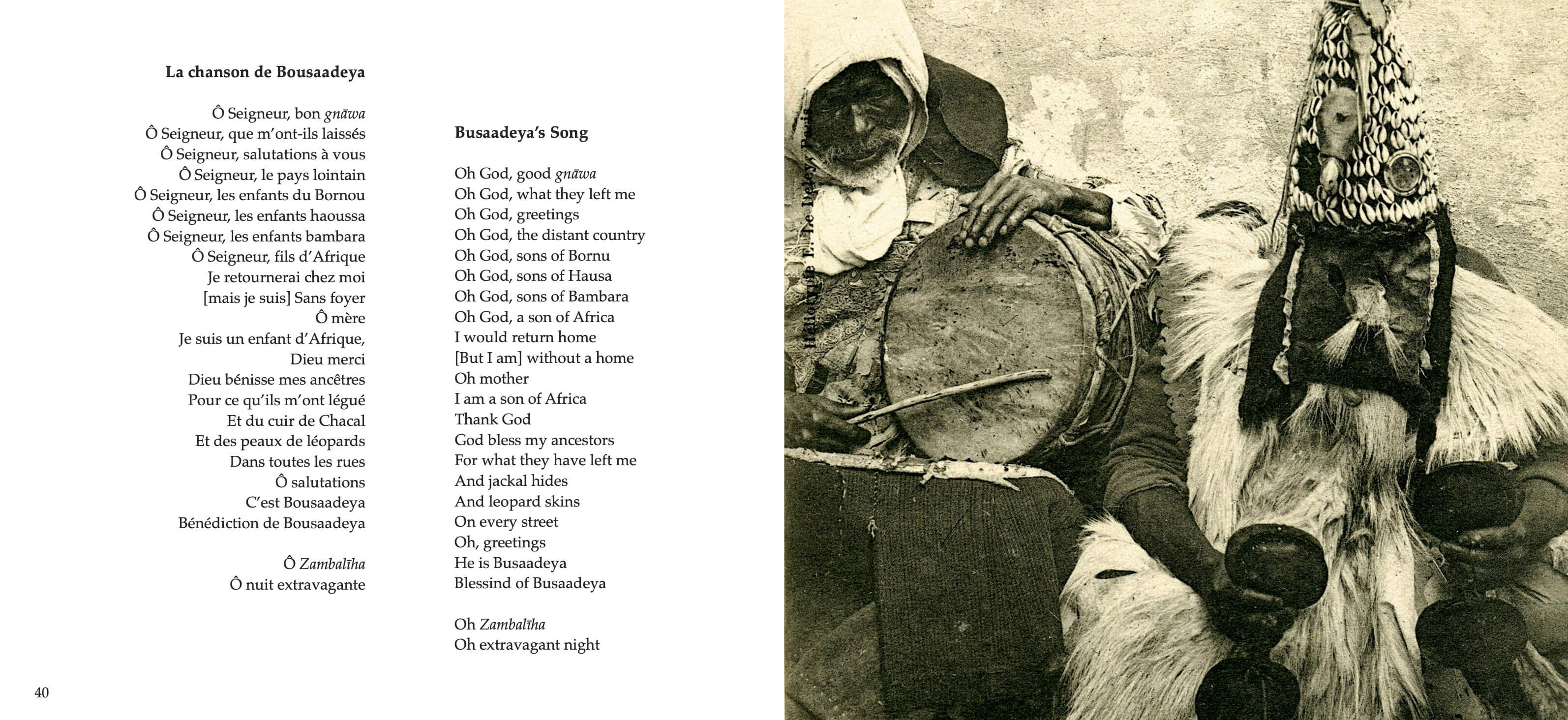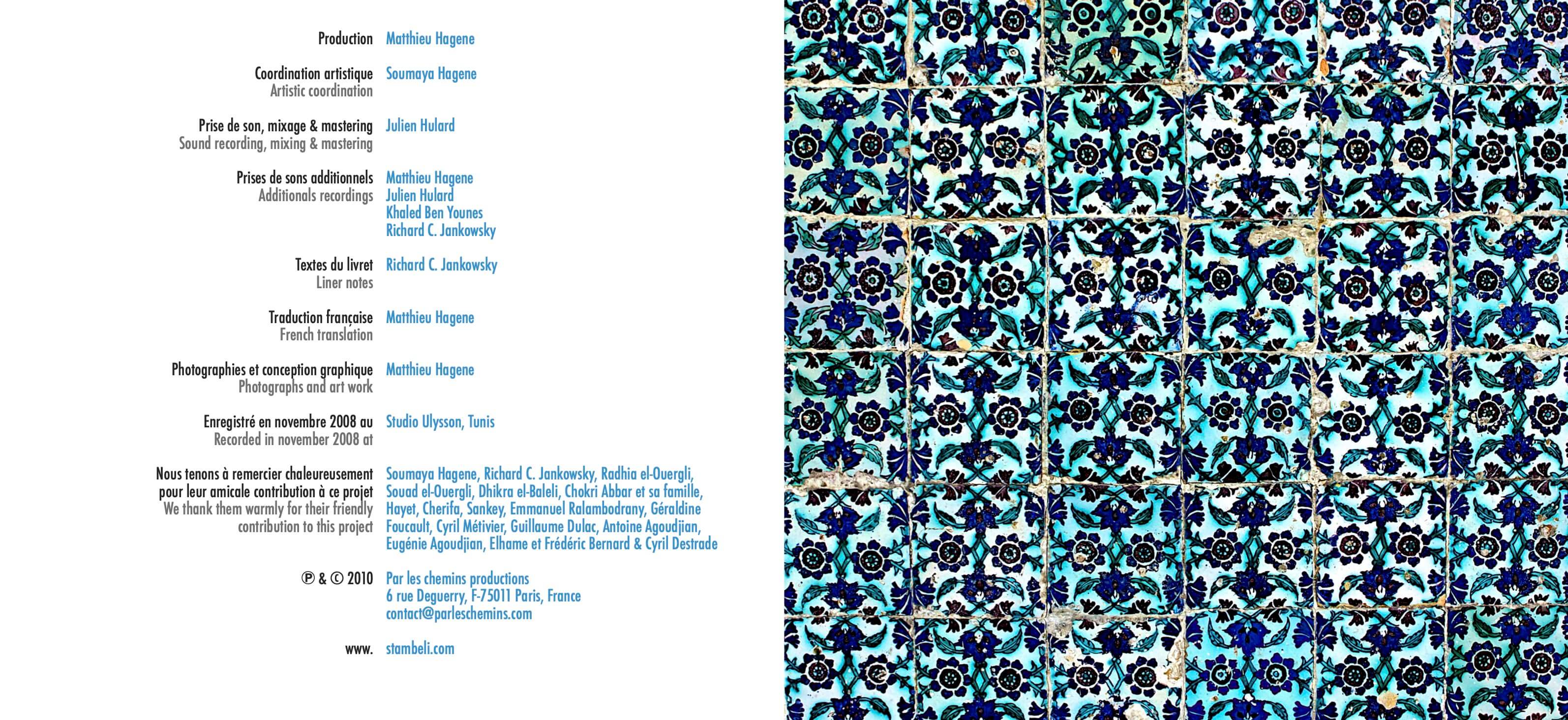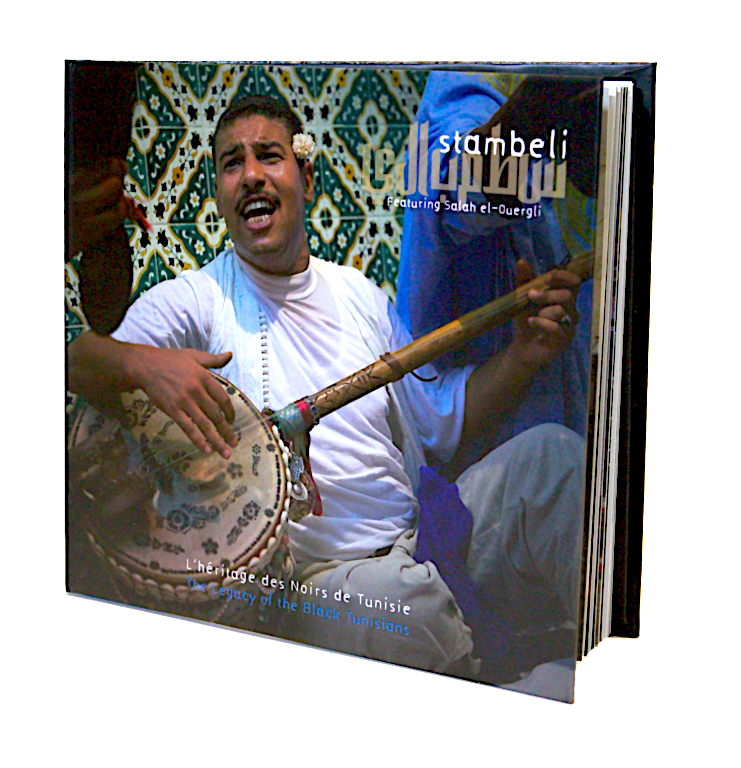
Stambeli
The Legacy of the Black Tunisians
Salah el-Ouergli
Media book
48 pages color booklet
18 illustrations
French/english text
7 tracks
Total length 45’53”
Awards
Coup de coeur - Académie Charles Cros
Bravo ! - Journal Trad'magazine

The stambeli of Tunisia, a music and trance healing tradition close to the algerian diwan or the derdeba of the moroccan gnawas, is about to sink into oblivion.
Often sidelined of the tunisian social life, sometimes even despised or persecuted, the stambeli kept a depth and an authenticity that make it still one of the most fascinating music of Tunisia.
Under the leadership of Salah el-Ouergli, last master of stambeli, this disc presents a unique and to now unreleased sample of a vast repertoire consisting of songs praising the “white” saints of the Maghrebic Islam and evocations of “black” sub-Saharan spirits. To the sound of gumbri, this three-stringed lute with powerful bass, accompanied with the shqasheq, the iron clappers, the yenna is sending down the spirits among the assembly and make them dance...
Tracks list
Sarkin Koufa [04:59]
Debdabou [04:57]
Tabla [05:59]
Les Saints [11:31]
Bousaadeya [07:04]
Bahriyya [07:11]
Gambara [05:32]
Salah el-Ouergli :
gumbri, gambara, tabla, lead vocal
Belhassen Mihoub :
shqasheq, bendir, vocal
Nouredine Soudani :
shqasheq, gaṣaa, vocal
Lotfi el-Hamemi :
shqasheq, kurkutu, vocal
Production :
Matthieu Hagene
Artistic coordination :
Soumaya Hagene
Sound recording & mixing :
Julien Hulard
Liner notes :
Richard C. Jankowsky
BOOKLET EXCERPTS
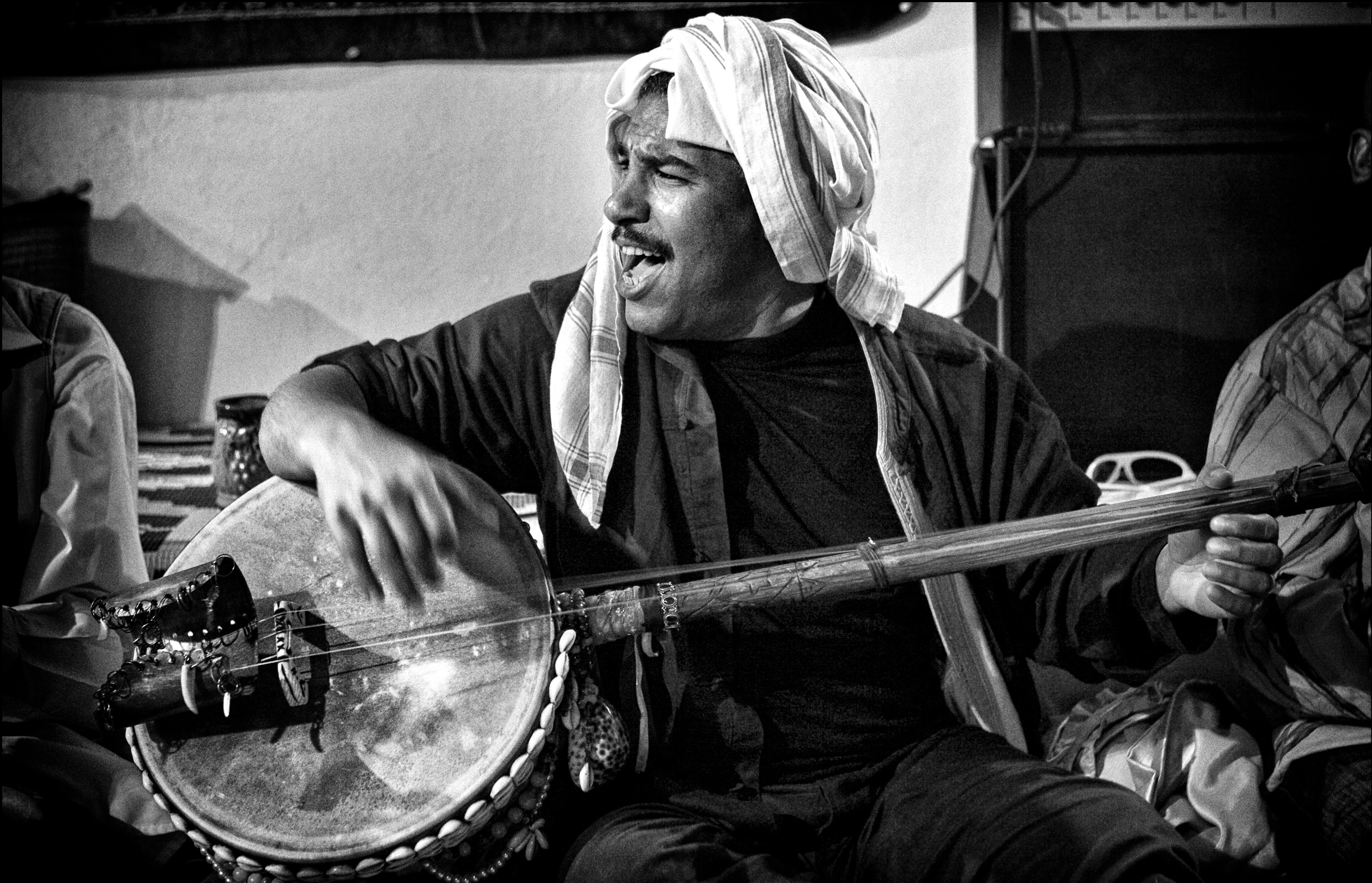
TRAD'MAGAZINE
It only takes one disc like this one, combining a booklet with indispensable texts, good photos and a quality recording, to contradict those who would proclaim that discs are dead. This one contributes to the discovery and livelihood of a tradition. It is therefore essential.
Etiennes Bours
MONDOMIX
A thrilling document that benefits from a richly iconographic booklet. Essential.
Jacques Denis
LES INROCKUPTIBLES
Listening to the disc does not provide proof of Stambeli's healing power, but its side effects (trembling, dizziness, hallucinations) are guaranteed.
Jacques Deschamps
ETHNOTEMPOS
This edition deserves to be recognized as being in the public interest, culturally speaking. As much for fervent ethnomusicological archivists and anthropological students as for buffs of trance music, this first and brilliant recording by PLC (Par les chemins) is both a primordial document and a rare, gripping musical moment.
Stéphane Fougère
CAHIERS D'ETHNOMUSICOLOGIE
Let us congratulate ourselves on this opus if only because it introduces hereto unknown music executed with brio, and according to its (endangered) authors, it deserves all our interest and gratitude.
Jean Pouchelon
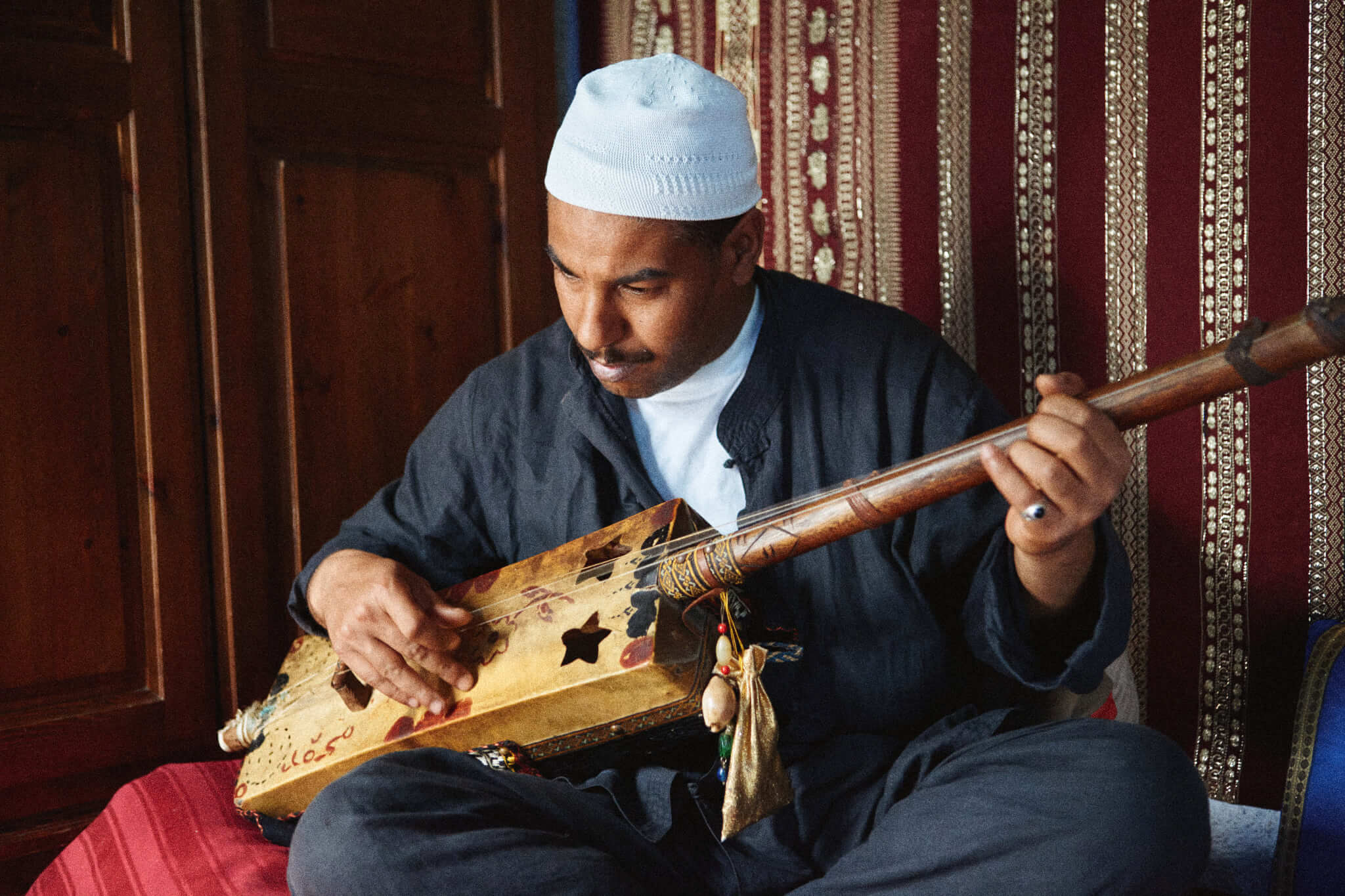
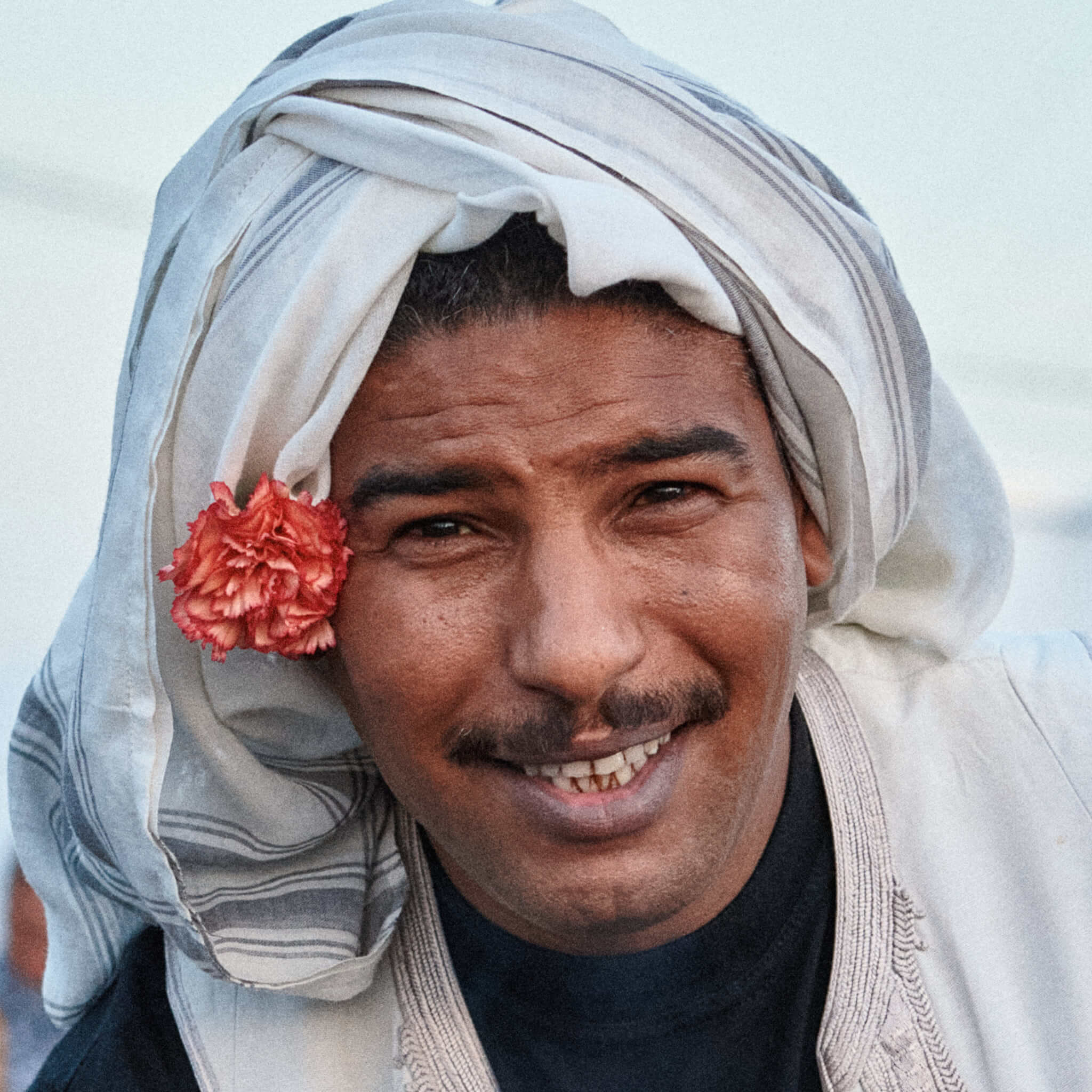
Salah el-Ouergli
The last master of stambeli
Salah el-Ouergli was not born at Dar Barnu, the last communal house that served in the past as site of refuge for freed slaves and other displaced sub-Saharans, but in the house across the street. Being so close, and as a young child intrigued by the comings and goings of these disturbing yet fascinating characters, he decides to cross the threshold of the house and enter into the world of Stambeli.
At first he was a mere spectator, then participant in the secrecy of his room where he ceaselessly tried to reproduce the melodic sequences he heard at Dar Barnu on a small gumbri he made himself. He later learned the words when Abdel Majid Mihoub took him on as apprentice. Unknown to his master, he also took part in ceremonies led by other masters, who allow him to play the gumbri from time to time, both amused and amazed by the young boy’s abilities. Instead of running after a football with the other kids of his age, he preferred to spend his days and nights listening to the stories told by his elders, musicians, healers or simple followers, thus taking in a rare and priceless stock of information. Little by little, Salah takes his place within the society and is honored to be named yenna (master) by his elders. After the death of Abdel Majid Mihoub, even though there are still a handful of gumbri players in Tunis, he is today the unique representative of a musical, cultural, and spiritual knowledge that is in danger of disappearing.



